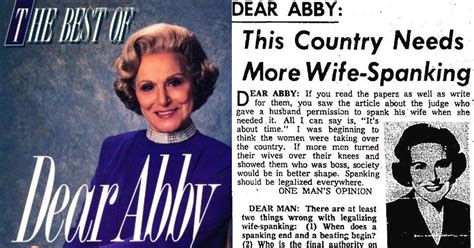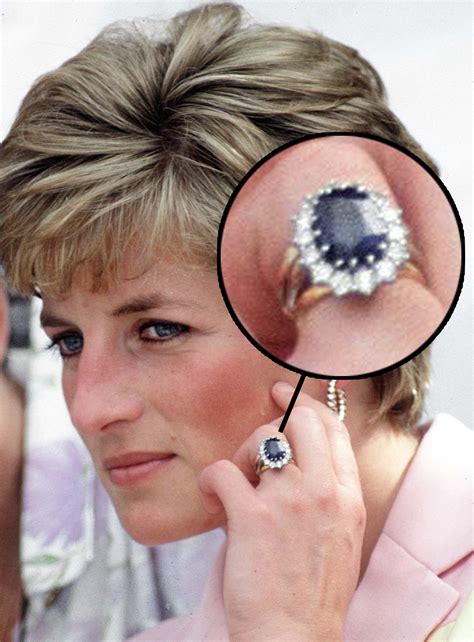
A husky’s dramatic reaction to an unanticipated early trip to a pet store has captivated social media, showcasing the breed’s characteristic vocalizations and dramatic flair.
A husky named Blu experienced a full-blown “meltdown” when his owner deviated from their usual routine and took him to the pet store earlier than expected, according to a viral TikTok video. The video, posted by Blu’s owner, captured the dog’s loud vocalizations and apparent distress, resonating with many viewers familiar with the breed’s expressive nature.
The incident unfolded when Blu’s owner decided to make an impromptu visit to the pet store. Huskies are known for their routines, and any disruption can lead to a dramatic reaction. The video quickly gained traction, amassing millions of views and comments from people who found the husky’s reaction amusing and relatable. “He was not happy we were there early 😂,” the owner wrote in the caption.
The video showed Blu expressing his displeasure through a series of howls, whines, and what some viewers described as “talking back” to his owner. While it might appear to some as the husky being in distress, others familiar with the breed’s temperament suggest it is a typical display of husky drama.
Huskies and Their Dramatic Nature
Huskies are renowned for their intelligence, energy, and independent spirit. Bred as sled dogs in the Arctic, they possess a strong will and a penchant for vocalization. This combination often results in what many owners affectionately refer to as “husky tantrums.”
Dr. Sarah Miller, a veterinarian specializing in canine behavior, explains that huskies’ vocalizations are a form of communication. “Huskies are naturally communicative dogs, and they use a variety of sounds to express their needs and emotions,” she says. “While it might sound like Blu is unhappy, he is actually communicating his feelings about the change in routine. In this case, it appears to be the change in routine that set him off.”
The breed’s history as working dogs also plays a role in their behavior. Huskies were bred to work in teams and make decisions independently, which means they are not always inclined to follow commands without question. This independence can manifest as stubbornness or resistance to change, especially when it comes to routines they have become accustomed to.
Social Media Reaction
The video of Blu’s meltdown sparked a flurry of reactions on social media. Many husky owners shared their own experiences with their dogs’ dramatic behavior, while others expressed amusement and amazement at the dog’s antics.
One commenter wrote, “This is the most husky thing I’ve ever seen! They are such drama queens (and kings).” Another added, “My husky does the exact same thing when we change our walking route. It’s like they have a set schedule in their heads.”
Some viewers, however, expressed concern for the dog’s well-being, mistaking his vocalizations for signs of distress. “I hope he’s okay,” one person commented. “He sounds really upset.” In response, experienced husky owners reassured them that this behavior is typical for the breed and not necessarily indicative of genuine distress.
“Huskies are very vocal, and their vocalizations can sound alarming to those unfamiliar with the breed,” explains seasoned husky owner, Mark Johnson. “But most of the time, they’re just expressing their opinions or trying to get their way. It’s part of their charm.”
Understanding Husky Behavior
For those unfamiliar with huskies, it’s essential to understand that their dramatic displays are often a combination of communication, independence, and a strong sense of routine. While it’s important to address any underlying issues that might be causing genuine distress, most of the time, these “meltdowns” are simply a part of the breed’s unique personality.
Training and socialization can help manage a husky’s dramatic tendencies. Early socialization can help them become more adaptable to new situations, while consistent training can help them understand boundaries and expectations.
“Huskies need a lot of exercise and mental stimulation to stay happy and well-behaved,” says Dr. Miller. “If they’re bored or under-stimulated, they’re more likely to act out.”
Providing a structured routine, along with plenty of opportunities for exercise and play, can help minimize the likelihood of dramatic outbursts. However, it’s also important to remember that huskies will always have a flair for the dramatic, and a little bit of understanding and patience can go a long way in managing their behavior.
Expert Opinions on Managing Husky Temperament
To further understand and manage husky behavior, insights from canine behaviorists and veterinarians are invaluable. Experts emphasize the importance of understanding the breed’s inherent traits and tailoring training and management strategies accordingly.
“When dealing with a dramatic husky, it’s crucial to remain calm and consistent,” advises canine behaviorist Emily Carter. “Reacting with frustration or anger will only escalate the situation. Instead, focus on redirecting their attention and reinforcing positive behavior.”
Carter also recommends providing huskies with plenty of mental stimulation through puzzle toys, training exercises, and interactive games. This can help channel their energy and prevent boredom, which is often a trigger for unwanted behavior.
Veterinarian Dr. David Lee stresses the importance of ruling out any underlying medical conditions that could be contributing to a husky’s behavior. “Sometimes, what appears to be a behavioral issue is actually a symptom of a medical problem,” he explains. “Pain, discomfort, or hormonal imbalances can all affect a dog’s behavior. It’s essential to consult with a veterinarian to rule out any medical causes before assuming it’s simply a matter of temperament.”
Dr. Lee also highlights the significance of proper nutrition in maintaining a husky’s overall health and well-being. “A balanced diet that meets their specific nutritional needs can help support their physical and mental health,” he says. “Avoid feeding them excessive amounts of processed foods or treats, as these can contribute to hyperactivity and behavioral problems.”
Practical Tips for Husky Owners
Based on expert advice and the experiences of seasoned husky owners, here are some practical tips for managing a husky’s dramatic tendencies:
- Establish a Consistent Routine: Huskies thrive on routine, so try to stick to a regular schedule for feeding, exercise, and playtime. This can help minimize anxiety and reduce the likelihood of unexpected outbursts.
- Provide Plenty of Exercise: Huskies are high-energy dogs that need a lot of exercise to stay happy and well-behaved. Aim for at least two hours of exercise per day, including activities like running, hiking, or playing fetch.
- Offer Mental Stimulation: In addition to physical exercise, huskies also need plenty of mental stimulation. Puzzle toys, training exercises, and interactive games can help keep their minds engaged and prevent boredom.
- Socialize Early and Often: Early socialization is crucial for helping huskies become well-adjusted and adaptable to new situations. Expose them to a variety of people, places, and experiences from a young age.
- Train Consistently: Huskies are intelligent dogs, but they can also be independent and stubborn. Consistent training is essential for establishing boundaries and teaching them to follow commands.
- Redirect Attention: When a husky starts to exhibit dramatic behavior, try redirecting their attention with a toy, a treat, or a command. This can help interrupt the behavior and prevent it from escalating.
- Stay Calm: Reacting with frustration or anger will only make the situation worse. Instead, remain calm and speak to your husky in a reassuring voice.
- Seek Professional Help: If you’re struggling to manage your husky’s behavior, don’t hesitate to seek professional help from a certified dog trainer or behaviorist.
Beyond the Viral Video: A Deeper Look at Husky Ownership
While the viral video of Blu’s “meltdown” provides a humorous glimpse into the world of husky ownership, it also underscores the importance of understanding the breed’s unique needs and characteristics. Owning a husky is not for everyone, and it’s essential to do your research before bringing one into your home.
Huskies are intelligent, energetic, and independent dogs that require a lot of exercise, mental stimulation, and consistent training. They also have a strong prey drive and can be prone to escaping, so it’s essential to provide them with a secure environment.
Despite their challenges, huskies can make wonderful companions for the right owners. They are loyal, affectionate, and playful dogs that thrive on human interaction. With proper care and training, they can be a joy to have in your life.
Before acquiring a husky, potential owners should consider the following factors:
- Living Space: Huskies need plenty of space to run and play, so they are not well-suited for apartment living. A large yard with a secure fence is ideal.
- Climate: Huskies are bred for cold climates and can overheat easily in hot weather. If you live in a warm climate, you’ll need to take extra precautions to keep them cool, such as providing them with plenty of shade and water.
- Time Commitment: Huskies require a significant time commitment for exercise, training, and grooming. Be prepared to spend several hours each day caring for your husky.
- Experience: Huskies are not recommended for first-time dog owners. They require a firm, consistent hand and a thorough understanding of their unique needs.
- Financial Resources: Owning a husky can be expensive. Be prepared to cover the costs of food, veterinary care, grooming, and training.
By carefully considering these factors, potential owners can determine whether a husky is the right breed for them. If you are prepared to meet their needs, a husky can be a loyal and loving companion for many years to come.
The Broader Context: Huskies in Popular Culture and Media
The viral video of Blu the husky’s meltdown is just one example of how huskies have captured the public’s imagination. These striking dogs have become increasingly popular in recent years, thanks in part to their appearances in movies, television shows, and social media.
Huskies have played prominent roles in films such as “Eight Below,” “Snow Dogs,” and “Balto,” which have showcased their intelligence, athleticism, and loyalty. They have also appeared in popular television shows like “Game of Thrones,” where they portrayed dire wolves, further cementing their image as majestic and powerful creatures.
Social media has also played a significant role in the rise of husky popularity. Many husky owners have created Instagram and TikTok accounts dedicated to their dogs, sharing photos and videos of their antics with millions of followers. These accounts have helped to raise awareness of the breed and showcase their unique personalities.
However, the increased popularity of huskies has also led to some concerns. Some people acquire huskies without fully understanding their needs, which can result in neglect or abandonment. It’s essential to remember that huskies are not just cute and cuddly pets; they are also high-energy, demanding dogs that require a significant time commitment.
Responsible breeders and rescue organizations are working to educate potential owners about the realities of husky ownership and to ensure that these dogs are placed in loving and capable homes. By promoting responsible breeding practices and providing ongoing support to husky owners, they hope to ensure that these magnificent dogs continue to thrive for generations to come.
In conclusion, the story of Blu the husky’s “meltdown” is a reminder that huskies are unique and complex creatures with their own distinct personalities. While their dramatic behavior can be amusing, it’s important to understand the underlying reasons for their actions and to provide them with the care and training they need to thrive. Whether it’s sticking to a routine or making sure they have enough playtime, understanding these amazing dogs helps make them great companions.
Frequently Asked Questions (FAQ)
-
Why did the husky have a “meltdown” at the pet store?
According to the owner, Blu’s “meltdown” occurred because the trip to the pet store was earlier than his usual routine. Huskies are known to be creatures of habit, and deviations from their established schedules can trigger dramatic reactions. The owner stated, “He was not happy we were there early 😂.”
-
Is this behavior normal for huskies?
Yes, many husky owners report similar experiences. Huskies are known for their vocalizations and dramatic displays, which are often a combination of communication, independence, and a strong sense of routine. It’s not necessarily indicative of distress but rather a way for them to express their opinions or try to get their way.
-
What should I do if my husky has a similar “meltdown”?
Experts recommend remaining calm and consistent. Avoid reacting with frustration or anger, as this can escalate the situation. Instead, try redirecting their attention with a toy, treat, or command. Providing a structured routine, plenty of exercise, and mental stimulation can also help minimize these outbursts.
-
Are huskies good pets for first-time dog owners?
Huskies are generally not recommended for first-time dog owners. They require a firm, consistent hand, a thorough understanding of their unique needs, and a significant time commitment for exercise, training, and grooming. Their independent nature and strong will can be challenging for inexperienced owners.
-
What are the specific needs of a husky that potential owners should consider?
Potential husky owners should consider several factors, including living space (a large yard with a secure fence is ideal), climate (huskies are bred for cold climates and can overheat easily), time commitment (several hours each day for exercise, training, and grooming), experience (huskies are not recommended for first-time dog owners), and financial resources (food, veterinary care, grooming, and training can be expensive). Additionally, understanding their need for a routine and their potential for dramatic behavior is crucial for a successful husky ownership experience.
-
How much exercise does a Husky need daily?
Huskies are high-energy dogs that need a lot of exercise to stay happy and well-behaved. Aim for at least two hours of exercise per day, including activities like running, hiking, or playing fetch. This helps channel their energy and prevent boredom, which is often a trigger for unwanted behavior.
-
What kind of mental stimulation is good for Huskies?
Huskies also need plenty of mental stimulation. Puzzle toys, training exercises, and interactive games can help keep their minds engaged and prevent boredom. These activities challenge their intelligence and provide a constructive outlet for their energy.
-
How important is early socialization for Huskies?
Early socialization is crucial for helping Huskies become well-adjusted and adaptable to new situations. Expose them to a variety of people, places, and experiences from a young age. This helps them develop into well-rounded dogs that are less likely to react fearfully or aggressively to new stimuli.
-
What kind of training is effective for Huskies?
Consistent training is essential for establishing boundaries and teaching Huskies to follow commands. Positive reinforcement methods, such as rewarding desired behaviors with treats or praise, are generally more effective than punishment-based approaches. Be patient and persistent, as Huskies can be independent and stubborn.
-
Are there any specific health concerns common in Huskies?
Yes, Huskies are prone to certain health issues, including hip dysplasia, progressive retinal atrophy (PRA), and hypothyroidism. Regular veterinary check-ups and a balanced diet can help minimize the risk of these conditions. It’s also important to purchase from a reputable breeder who screens their dogs for these genetic health problems.
-
How can I redirect a Husky’s attention when they start acting out?
When a Husky starts to exhibit dramatic behavior, try redirecting their attention with a toy, a treat, or a command. This can help interrupt the behavior and prevent it from escalating. For example, you could offer them a favorite chew toy or ask them to perform a known command like “sit” or “stay.”
-
Is it important to maintain a calm demeanor when dealing with a dramatic Husky?
Yes, reacting with frustration or anger will only make the situation worse. Instead, remain calm and speak to your Husky in a reassuring voice. Dogs are sensitive to human emotions, and your calmness can help de-escalate the situation.
-
When should I seek professional help for my Husky’s behavior?
If you’re struggling to manage your Husky’s behavior, don’t hesitate to seek professional help from a certified dog trainer or behaviorist. They can provide tailored guidance and strategies for addressing specific behavioral issues.
-
What are some common misconceptions about Husky ownership?
One common misconception is that Huskies are low-maintenance dogs. In reality, they require a significant time commitment for exercise, training, and grooming. Another misconception is that they are aggressive. While they have a strong prey drive, they are generally friendly and good-natured with people and other dogs when properly socialized.
-
How does the climate affect a Husky’s well-being?
Huskies are bred for cold climates and can overheat easily in hot weather. If you live in a warm climate, you’ll need to take extra precautions to keep them cool, such as providing them with plenty of shade and water, avoiding strenuous exercise during the hottest parts of the day, and considering a cooling vest or mat.
-
What type of living environment is best suited for a Husky?
Huskies need plenty of space to run and play, so they are not well-suited for apartment living. A large yard with a secure fence is ideal. They also have a tendency to dig, so it’s important to reinforce the fence to prevent escapes.
-
Are Huskies prone to escaping?
Yes, Huskies are known for their escape artist abilities. They are intelligent and resourceful and will often find ways to get out of enclosures. It’s important to have a secure fence and to supervise them when they are outdoors.
-
What is the role of a responsible breeder in Husky ownership?
Responsible breeders play a crucial role in ensuring the health and well-being of Huskies. They screen their dogs for genetic health problems, provide proper care and socialization to puppies, and educate potential owners about the realities of Husky ownership. They also offer ongoing support to owners after they take their puppy home.
-
How does nutrition impact a Husky’s behavior?
Proper nutrition is essential for maintaining a Husky’s overall health and well-being. A balanced diet that meets their specific nutritional needs can help support their physical and mental health. Avoid feeding them excessive amounts of processed foods or treats, as these can contribute to hyperactivity and behavioral problems.
-
What is the importance of providing a structured routine for Huskies?
Huskies thrive on routine, so try to stick to a regular schedule for feeding, exercise, and playtime. This can help minimize anxiety and reduce the likelihood of unexpected outbursts. Knowing what to expect can help them feel more secure and confident.
-
How do I address destructive chewing in my Husky?
Destructive chewing is often a sign of boredom or anxiety in Huskies. Provide them with plenty of chew toys and puzzle toys to keep them entertained. Make sure they are getting enough exercise and mental stimulation. If the chewing persists, consider consulting with a dog trainer or behaviorist.
-
Are Huskies good with children?
Huskies can be good with children, especially if they are raised together from a young age. However, it’s important to supervise interactions between Huskies and young children to prevent accidental injuries. Huskies have a high energy level and can be unintentionally rough during play.
-
What is the typical grooming routine for a Husky?
Huskies have a thick double coat that requires regular grooming. They shed heavily twice a year, during which time daily brushing is necessary to remove loose fur. During the rest of the year, brushing a few times a week is sufficient to prevent matting and tangles.
-
How can I teach my Husky to come when called?
Teaching a reliable recall is essential for Husky safety. Start by training in a controlled environment, such as your backyard. Use a positive reinforcement method, rewarding your Husky with a treat or praise when they come to you. Gradually increase the distance and distractions as they become more reliable.
-
Are Huskies prone to separation anxiety?
Huskies can be prone to separation anxiety if they are left alone for extended periods of time. Provide them with plenty of toys and activities to keep them occupied. Consider crate training, which can provide them with a safe and secure space. If the anxiety is severe, consult with a veterinarian or dog trainer.
-
How can I prepare my Husky for vet visits?
To prepare your Husky for vet visits, start by handling them regularly from a young age. Touch their paws, ears, and mouth so they become accustomed to being examined. Take them to the vet’s office for friendly visits without any procedures to help them associate it with positive experiences. Use treats and praise to reward calm behavior during examinations.
-
What are some signs that my Husky is stressed or anxious?
Signs of stress or anxiety in Huskies can include panting, pacing, lip licking, yawning, tail tucking, and destructive behavior. If you notice these signs, try to identify the source of the stress and remove your Husky from the situation. Provide them with a safe and comfortable space to relax.
-
How can I make my Husky more comfortable during thunderstorms or fireworks?
Some Huskies are afraid of thunderstorms or fireworks. Create a safe and comfortable space for them, such as a crate or a quiet room. Play soothing music or use a white noise machine to help mask the loud noises. Stay calm and reassure them with a gentle voice and petting.
-
What are the benefits of enrolling my Husky in obedience classes?
Obedience classes provide valuable training and socialization opportunities for Huskies. They can help you establish a strong bond with your dog, teach them basic commands, and address behavioral issues. They also provide a structured environment for them to interact with other dogs and people.
-
How can I prevent my Husky from chasing cats or other small animals?
Huskies have a strong prey drive and can be prone to chasing cats or other small animals. Supervise them carefully when they are around these animals and use a leash to prevent them from chasing. Train them to respond to a “leave it” command to interrupt the behavior.









